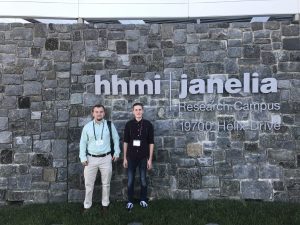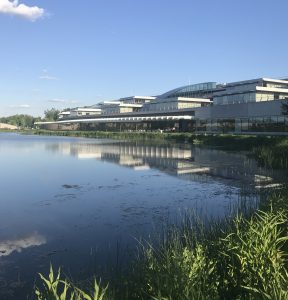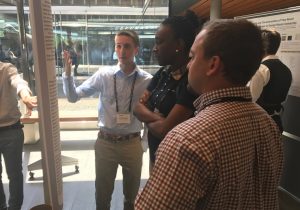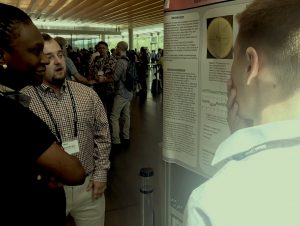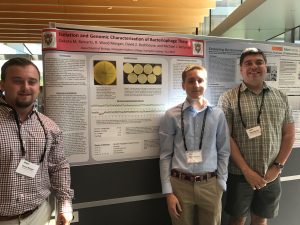2017 marks the sixth year of Hampden-Sydney’s participation in the Howard Hughes Medical Institute’s (HHMI) Science Education Alliance-Phage Hunters Advancing Genomic and Evolutionary Sciences (SEA-PHAGES) program. SEA-PHAGES is a national initiative in which undergraduates from roughly 100 institutions work to isolate and characterize bacteriophages, or viruses that infect bacteria, from the environment by molecular and bioinformatics methods. Each year, students from Dr. Mike Wolyniak’s Molecular and Cellular Biology course work to isolate and analyze novel bacteriophages while Genomics and Bioinformatics students annotate and study the DNA genomic sequences of these bacteriophages. Dakota Reinartz ’18 and Wood Morgan ’18 were members of both classes and recently presented some of the class’ work at the annual SEA-PHAGES symposium at HHMI’s Janelia Farm Research Campus in Ashburn, Virginia.
Dakota and Wood presented work on the class’ characterization of Thespis, a bacteriophage isolated previously by David Bushhouse ’19 that infects and destroys Mycobacterium smegmatis, a close relative of the bacteria responsible for tuberculosis.
The data collected from SEA-PHAGES students can be examined at phagesdb.org and has led to several peer reviewed publications on the ways in which viruses evolve and adapt in different environmental conditions. SEA-PHAGES is one of several opportunities Hampden-Sydney biology students get to interact with authentic research questions in their coursework.

